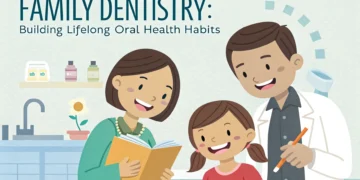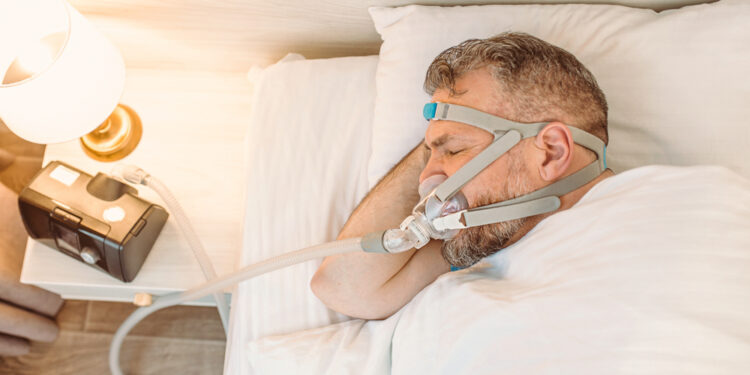Introduction
Do you feel tired after having a good sleep of 8 long hours? Do you have the desire to gasp for air after waking up? If so, sleep apnea may be the reason behind it.
Sleep apnea is a sleeping disorder that affects millions of people worldwide. If you experience tiredness or fatigue after you wake up, visit a top-rated sleep solution center near you and get expert advice.
Do you want to know about sleep apnea and how to determine that you are suffering from it? Don’t worry! This blog will highlight all your problems and enlighten you about sleep apnea.
What Does Sleep Apnea Mean?
Sleep apnea is a sleep disorder. Breathing issues arise while you sleep as a result of sleep apnea. It causes breathing repeatedly start and stop during sleep. There may be brief pauses in your breathing, or you may breathe very shallowly. Both of these possibilities are possible.
Around 90% of the people affected by sleep apnea are unaware of the condition; until informed by a family or friend. Sleep apnea should be treated at the time as if left untreated may lead to serious health issues. Snoring is also a symptom of sleep apnea, but it is not always the case. All sleep apnea patients do not snore, and all snoring people do not necessarily have sleep apnea. However, loud snoring is a prominent symptom of sleep apnea.
Sleep apnea can have a variety of causes, including smoking, obesity, alcohol use, and certain medical conditions, such as hypertension and diabetes.
Types of Sleep Apnea
The three main types of sleep apnea are:
- Obstructive sleep apnea (OSA) is the most common type and occurs when the muscles in the back of your throat malfunction to keep your airway open, causing you to snore loudly and gasp for air.
- Central sleep apnea (CSA) is when your brain cannot send proper signals to the muscles controlling your breathing.
- Complex Sleep Apnea, also known as treatment-emergent central sleep apnea, and is a combination of both types of sleep apnea mentioned above.
What are the causes of Sleep Apnea?
The types of sleep apnea differ in their causes.
Certain health conditions like obesity, hormonal imbalances, large tonsils, etc., can cause Obstructive sleep apnea. While health conditions that affect the brain to control the airway and chest muscles can cause central sleep apnea. The causative agent for complex sleep apnea can be either of the above causes as, complex sleep apnea is the combination of obstructive and central sleep apnea.
Warning Signs of Sleep Apnea
Sleep apnea symptoms vary according to gender and age. So, the demographic analysis for the variation of symptoms among different age groups and gender is detailed below:
Symptoms in Women
Although sleep apnea is less common among women, it is still a risk to their health. Some common symptoms in women include:
- daytime sleepiness
- concentration distraction during daytime
- dry mouth
- morning headaches
- mood changes
- irritability and depression
- loud snoring
- abrupt awakenings associated with choking and gasping
Symptoms in Men
Sleep apnea symptoms are similar in both men and women. However, men have a higher chance of getting this disorder than women. The possibility of men getting affected is two-three times higher than women. Some common symptoms include:
- gasping for air during daytime
- morning headache
- loud snoring
- having mouth dryness
- difficulty staying asleep
- excessive daytime sleepiness
- difficulty in concentration while awake
Symptoms in Children
Sleep apnea may also occur in a child called pediatric sleep apnea. It may raise serious issues for the children. Pediatric sleep apnea symptoms include:
- pauses in breathing
- snoring
- nighttime sweating
- sleep terrors
- bed-wetting
- mouth breathing
- coughing or choking
- restless sleep
These symptoms might indicate other health conditions, but if you are concerned, consult your physician to look for pediatric sleep apnea.
Diagnosis of Sleep Apnea
The most common way to diagnose sleep apnea is through a sleep study, a polysomnogram. During a sleep study, you will spend the night at a sleep center or in the comfort of your home.
You will be assisted by a monitoring system that measures your brain activity, breathing rate, heart rate, and other vital signs.
Other diagnostic tests may include an oxygen saturation test or a home sleep apnea test.
It is necessary to seek a professional diagnosis for sleep apnea, as it can lead to serious health consequences if left untreated.
Treatments for Sleep Apnea
Sleep apnea is not an untreated health condition. Effective treatments are available for curing sleep apnea. Some of these treatments are:
- CRAP (Continuous Positive Airway Pressure) – is a constructive therapy for sleep apnea. It is the primary treatment given to sleep apnea patients. The individual wears a mask that applies gentle air pressure to maintain an open airway and prevent any collapse during sleep. This form of treatment is known to be very successful, and a majority of insurance plans cover it.
- BPAP ( Bilevel Positive Airway Pressure) – It is also used to facilitate breathing and is a non-invasive treatment option. It is considered more practical and comfy than a CRAP machine.
- Oral Appliance- Patients suffering from obstructive sleep apnea, which is not heavy, may get assistance with a dental appliance. These appliances prevent the tongue from blocking the throat or the lower jaw. In this way, it keeps the airway open during sleep. This type of treatment requires both a sleep specialist and a dentist. It is an inexpensive treatment; but applicable to those only with mild to moderate symptoms.
Health Complications Linked to Sleep Apnea
We have mentioned earlier that sleep apnea may lead to other health complications if left untreated. What are those health complications? Are they mild or life-threatening?
Here’s the tricky part. Sleep apnea can cause serious health issues that may become life-threatening over time. It may affect your heart, memory, and other vital organs and systems.
Sleep apnea may cause:
- High blood pressure
- Heart failure
- Heart diseases
- Stroke
- Weight issues
- Type 2 Diabetes
- Adult Asthma
- Acid reflux
- Brain fog
- Metabolic syndrome
- Memory loss
- Car accidents
- Depression
Sleep apnea may initiate these complications or worsen the already existing ones. It can be life-threatening sometimes; for instance, it may cause car accidents or heart failure. So, don’t ignore the condition thinking it is a sleep disorder and will get away on its own. Gradually, it can come into your life. So, visit a sleep specialist or a primary care physician whenever you feel the symptoms.
Conclusion
Sleep apnea is a sleep disorder that can affect any gender or age group. It is two-three times more frequent in men than in women. Sleep apnea causes a pause in breathing during sleep or may cause shallow breathing. In either case, you feel tired after a whole night of sleep and wake up feeling tired. The warning signs of sleep apnea vary among adults and children, but the common ones include snoring, gasping for air in the morning, headaches, etc. Obesity, hormonal imbalances, etc., may cause sleep apnea. Moreover, OSA can increase the recurrence probability of massive saddle pulmonary embolism, which can cause complications. If you feel any symptoms of sleeplessness or fatigue, consult a sleep specialist or a primary care physician.






























